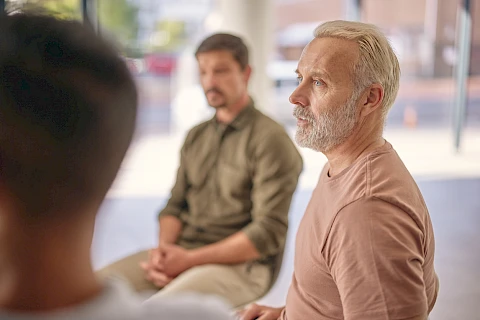
Post-traumatic stress disorder (PTSD) is a mental health disorder that can result from a traumatic event. It is alarmingly common among veterans. Our senior veterans, the brave men and women who dedicated their lives to protecting our freedoms, are unfortunately no exception.
PTSD in Senior Veterans
PTSD is a mental health disorder triggered by experiencing or witnessing a traumatic event. Among veterans, the trauma often stems from combat, but it can also arise from military training or other service-related experiences. PTSD can lead to persistent and intrusive memories of the traumatic event, changes in emotional reactions, and negative changes in thinking and mood. The impact on senior veterans can be severe, affecting both their mental health and overall quality of life.
Signs and Symptoms of PTSD
PTSD in senior veterans manifests in a variety of ways. Physical symptoms can include insomnia, fatigue, and heightened startle responses. Emotionally and psychologically, PTSD can lead to recurrent distressing dreams, emotional numbness, and difficulty concentrating. Veterans and those around them need to recognize these symptoms. Early identification can lead to more effective management of the condition. Everyone's symptoms can be different. Talk to your healthcare provider if you suspect you are experiencing symptoms of PTSD.
The Importance of Seeking Support
Despite the commonality of PTSD among veterans, there's often a stigma attached to mental health issues. This can deter veterans from seeking help. It's crucial to break down these barriers and ensure senior veterans understand it's acceptable and essential to seek help. The impact of combat experiences can linger long after service, impacting mental health and quality of life. Seeking support provides avenues for healing and recovery, allowing access to resources to help them cope better.
Coping Strategies for PTSD in Senior Veterans
There's a range of therapeutic strategies available to help manage PTSD. Cognitive processing therapy and eye movement desensitization and reprocessing can prove effective in coping with trauma. Mindfulness-based practices, such as meditation and deep breathing exercises, can help seniors regulate their emotions and reduce stress. Making lifestyle changes such as regularly exercising and maintaining a healthy sleep schedule can also help manage symptoms. Always consult with a healthcare provider before starting a new fitness routine.
Resources Available for Senior Veterans with PTSD
There are numerous resources available to senior veterans living with PTSD. Local mental health clinics, VA health facilities, and support groups can provide crucial assistance. On a national level, there are hotlines and organizations like the National Center for PTSD. These programs often include peer support groups, wellness activities, and educational workshops, empowering veterans to manage their symptoms effectively.
Contact Senior Helpers for Care and Compassionate Support
Recognizing the challenges senior veterans face and helping them navigate the complexities of PTSD in their senior years are essential steps toward ensuring their well-being and honoring their service. If you’re in Beaverton, King City, Hillsboro, Wilsonville, or Canby and want to explore in-home senior care and support, Senior Helpers Beaverton can help. We provide compassionate senior care, from companionship and personal care to help with daily living activities and other aspects of elderly care. Contact us to learn more!